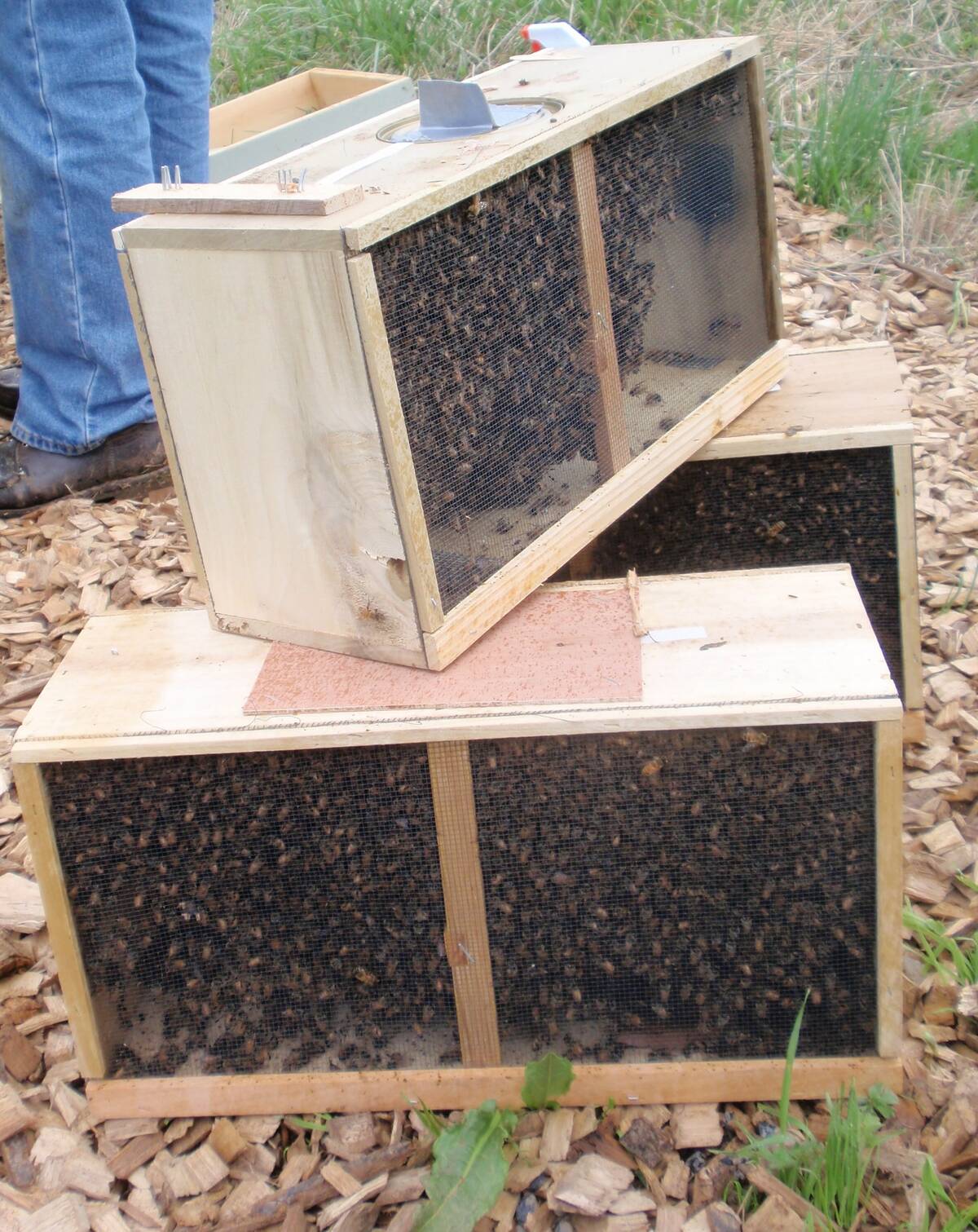As far as Alberta farm leaders are concerned, “all bets are off” on whether producer groups will be consulted on farm safety regulations following the passing of the controversial Bill 6.
“We were told right from the get-go with the new NDP government that they wanted to consult with us, and I guess that means different things to different people,” said Michael Ammeter, chair of Alberta Barley.
“We waited all summer and into the fall, up until the announcement of Bill 6, to be consulted and part of the conversation, and that never happened.
Read Also

Canadian beekeepers call for regulatory accountability
Beekeepers say the Canadian Food Inspection Agency should restore U.S. packaged bee shipments, claiming the agency isn’t following evidence.
“I hope we’re included in this in a meaningful way, not just as window dressing. I have hopes, but that’s as far as it goes.”
Following three tense weeks of protests, raucous town hall meetings, and social media outrage, Bill 6 (the Enhanced Protection for Farm and Ranch Workers Act) passed third reading on Dec. 10 — but not until the government backtracked on some of the more contentious parts of the legislation, including a stipulation that extending workplace safety rules to agriculture won’t apply to family members, whether they are paid or not.
But despite the furore, farm leaders said they will look for ways to work with the government to create practical regulations.
“The bill has passed, and we still want to be part of the conversation,” said Ammeter, who farms near Sylvan Lake. “But we’re still waiting for the phone to ring — for the government to include us.”
The Alberta Federation of Agriculture has a meeting scheduled with the government early in the new year, said president Lynn Jacobson.
“Hopefully, the government will live up to what it’s been saying on the consultation process,” said Jacobson, who farms near Enchant. “If it doesn’t, it’s going to have serious trouble again.”
Alberta Beef Producers was skeptical.
“Producers who so strongly opposed Bill 6 likely will not have much faith in this process,” the organization said in a statement. “Similarly, commodity organizations that have been criticized by producers for our efforts before and after the introduction of Bill 6 also will face a challenge in convincing producers that future consultations will produce better results.”
Consultation process
At this point, working with the government — not against it — is the best way to move forward, said Jacobson.
“Standing up and thumping the table at this time isn’t going to help,” he said.
Alberta Wheat chair Kent Erickson agrees — to a point.
“Producers are still mad. They’re still fighting,” said the Irma producer. “But as producer groups and stakeholders, we need to find how we’re going to manage the regulations if — worst-case scenario — it comes into effect as is.
“As commissions, we need to get together, sit down, and figure out how we can present the most unified, cohesive response to the regulations.”
But in order to work with the government, the commissions need a “clear process,” said Erickson.
“We want a process, we want it in writing, and we want a report coming out of that process showing that we told them these things and that they understand what we’re asking for,” he said.
“They need to show taxpayers that this is what we asked for and this is what we did or didn’t get.”
But Jacobson doesn’t “want to start a fight before we even get in the room.”
“We’re taking them at their word that they want to consult, and we’ll go in with what we would like to see,” he said.
“But coming in with demands about what it should look like is not realistic. You’re not going to get that far.”
Lost trust
However, taking the government at its word could prove to be a challenge, said Ammeter.
“This government has really lost the trust of agriculture, and quite frankly, I think it’s done some damage in the urban centres, too,” he said.
Some producers won’t be happy with the regulations no matter what, added Erickson.
“Producers are definitely not trusting government, and I don’t think anything it does is going to be enough for producers,” he said.
“The confidence is too damaged. It’s going to be a hard battle back.”
And that could put the commissions in the crosshairs.
“As commissions, we’re non-partisan, but we’re going to be the messengers of this regulation in a lot of people’s eyes,” said Erickson.
“How we can work with government to manage this without looking like we’re supporting government is going to be a real tricky one.”
But the regulations will be fleshed out anyway, said Ammeter, and the commissions need to be at the table — even at the risk of producer complaints.
“At the end of the day, this is law, and we need to be part of going forward from here, no matter how unpalatable we find it,” said Ammeter.
“No matter if you like it or not, we really need to be there to represent producers. There’s a bit of a risk either way we go, but I think the biggest risk would be not being there.”















